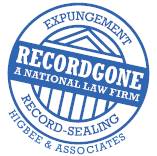
New Jersey Supreme Court
The New Jersey Superior Court has recently made criminal records available for the public to view.
This access makes it easier for employers to look into the past of their potential employees and it replaces the longer and more expensive method that employers previously had to undertake. This new ease of access allows employers to not only find potentially harmful information, but it also allows them to take the information into consideration when determining whether or not to hire a job candidate.
Beneficial to Employers, Detrimental to Employees
While an employer may feel that having access to these records is a benefit, it can be detrimental to a potential employee’s chances of obtaining employment if the employer comes across any criminal history information that they find to be undesirable. Employers can use this tool to discriminate against candidates with a criminal record, regardless of how old the conviction is or how far the employee has progressed since his or her conviction. Background checks used to be a longer and more expensive process, which meant that they were scarcely used by employers, and when they were used it was for the intention of finding severe crimes that were pertinent to their field of business. Employers can now peruse any job candidate’s criminal history, and they have the sole discretion on whether or not to use the information when considering a job applicant. This can lead to unfair hiring practices, and may disqualify a job candidate that has a minor offense in his or her past even if they are more experienced and better suited for a job than other applicants.

Even the Equal Employment Opportunities Commission, an institution standing for freedom of equality, had problems with this law change within their own company. In September 2009, the EEOC sued one of its employees that had been using criminal records as an excuse for not hiring applicants. That employer was discriminating against black, Hispanic, and male job applicants. Since then, the EECO has updated the guidelines that employers must follow when dealing with a candidate with a criminal record. Although, once an employer is aware that a job candidate or an employee has a criminal record is it unlikely that they can remain entirely objective.
An employer may screen candidates and still be in accordance with federal law, but this may not be a “defense according to the Guidance.” EECO even claims that “it is conceivable that some employers may find themselves forced to decide whether to comply with state or local law or face potential Title VII liability.” The only way for candidates to be certain that employers will not see their criminal record is if the case was filed before 1994, if the case has not been resolved yet, or if the case has already been expunged. While this new access to criminal history comes with many benefits for employers, it comes with an equally negative effect on job applicants with criminal history, and it has yet to be determined if it is worth the price of possible discrimination.
Therefore, it is important that you clear your record as much as possible so you can move forward with your life. Expungement is a wonderful investment for your future and allows you to apply for employment without having to worry. To see what record clearing options you may be eligible for in New Jersey, visit our New Jersey record sealing page.



